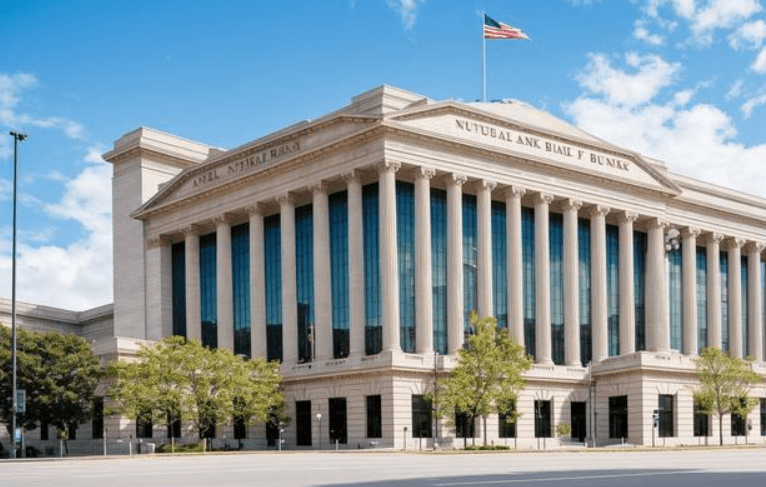Good news for US banks, but troubles are not over yet!
Good news from the Bank of America(31.98, 0.29, 0.92%) industry: Bank deposits have remained stable! But these major factors are still the dark clouds above their heads…
Heading into second-quarter earnings season, many investors expected the worst for regional banks. But that wasn’t the case in earnings reports this week, at least not for the big banks.
A number of banks, including KeyCorp, Alliance Western Bank and Zions Bancorp, reported sharp declines in profits. But their deposits remained stable or higher compared with the first quarter , a relief after clients across the industry pulled their funds earlier this year. Deposits at other regional lenders including Citizens Financial Group and M&T also rose in the second quarter.
For many investors, that’s good news enough. Shares of Citizens Financial Group, US Bancorp(38.42, -0.72, -1.84%) and KeyCorp have all gained 10% or more this week. Shares of Zions Bancorp rose more than 20%.
This week, KBW Nasdaq(14032.8052, -30.50, -0.22%)
The surprise rebound in stocks this year has given midsize banks more cushion to ride out the year’s ups and downs. So far, swift action by regulators and bankers in March has helped prevent the collapse of several mid-sized banks from turning into the full-blown systemic crisis that some initially feared.
Banking Trouble Unfinished
But the survey results also show that the road ahead for the US banking industry is still difficult . Citizens Financial Group chief executive Bruce Van Saun said, “I think people’s confidence in the system has returned somewhat, and I still think we’re in a challenging environment.”
Banks had to pay more in the second quarter to keep depositors after the Federal Reserve’s rate hikes made investments such as money market funds more profitable than keeping money in banks. The rapid rise in interest expenses has eroded profits, especially at regular banks, which typically don’t have the big businesses like wealth management that big banks have.
Second-quarter profits at many regional banks fell short of Wall Street expectations, even for big names like Truist Financial, Fifth Third Bancorp and Bank of America. Meanwhile, JPMorgan Chase(154.95, -1.20, -0.77%) and Wells Fargo(45.96, -1.17, -2.48%) topped estimates with big profits.
Profits fell particularly sharply at some regional banks, whose deposit performance was more volatile, with Alliance Western Bank and Zions’ profits down 17 per cent and 14 per cent year-on-year, respectively.
Bank deposits of all sizes fell compared with a year ago . But many small and medium-sized banks have had to rely more heavily on costly funding sources to fill the gap, such as loans from the Federal Home Loan Bank system or deposits through third-party intermediaries.
Net interest margins, a key profitability measure for regional banks, fell sharply in the second quarter . Net interest margin measures the difference between what a bank charges on loans and what it pays on deposits. Van Saun says:
“This has been a big question hanging over the banks, especially the regional banks, when will the erosion of net interest margins stop?”
Regulation and commercial real estate remain dark clouds over banks
Many regional banks have lowered their profit forecasts for this year and have started hoarding more cash, rather than using it to make new loans, as they brace for possible new regulations. The economy is also expected to slow, which could lead to more Americans defaulting on their loans. Loan demand has already started to slow as household budgets are weighed down by rising interest rates and cooling but still high inflation.
Some regional banks are already taking a beating on commercial real estate , especially office properties that have lost value since the pandemic. Even vaunted Goldman Sachs(351.96, 1.10, 0.31%) slashed its real estate holdings in the second quarter, much of it tied to office buildings.
M&T said its net charge-offs more than doubled to $127 million in the year-ago quarter, driven by several office buildings in New York City and Washington, D.C., as well as a large health care company in New York state. Net charge-offs on PNC Financial’s(134.26, 0.27, 0.20%)
PNC Chief Executive Bill Demchak said he thinks commercial real estate, especially office space, will be in trouble even with a soft landing. Demchak said on a conference call with analysts:
